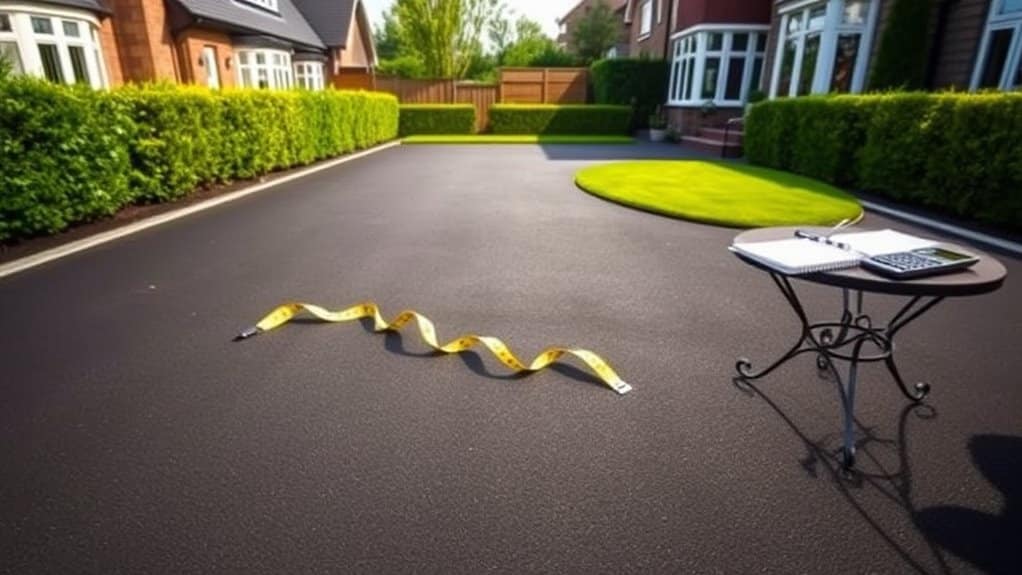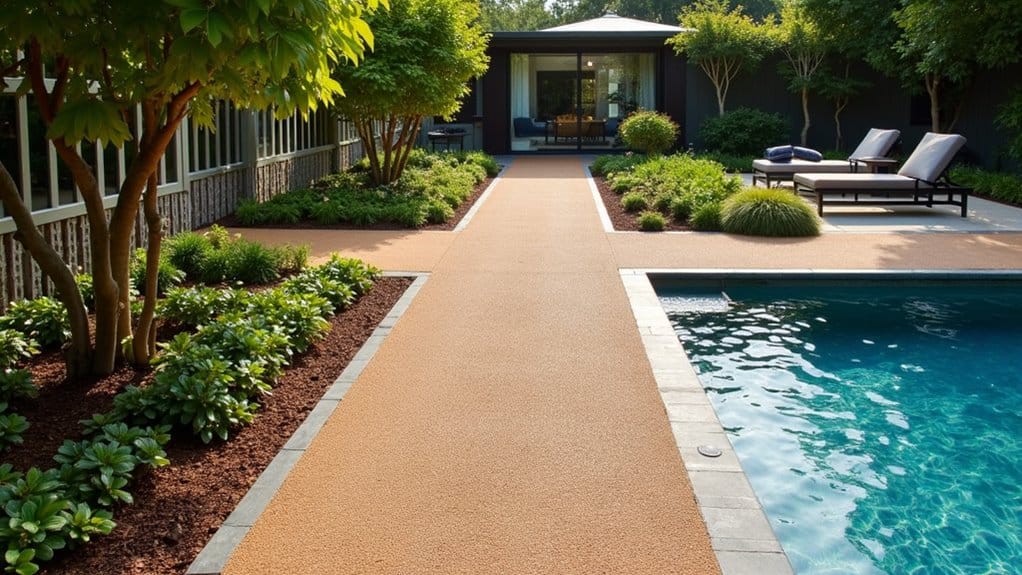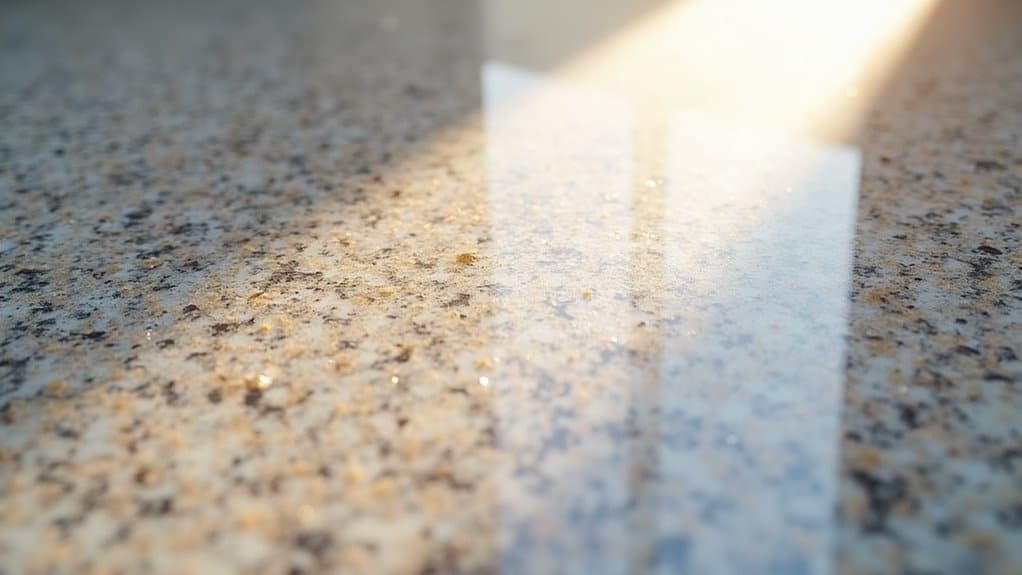Tarmac driveway costs in 2025 will vary based on factors such as material quality, installation complexity, and your location. Typically, prices range from around £2,200 for a small driveway to £7,000 for a larger one. In urban areas, labour costs tend to be higher, and regional availability of materials can also affect prices. Being aware of these factors will help you budget properly. For more tips on planning your tarmac driveway project, keep reading.
Table of Contents
ToggleKey Takeaways
Tarmac driveway costs in 2025 will likely vary depending on the quality of materials, local pricing, and the expertise of contractors.
For example, you might expect to pay between £2,200 and £7,000 for driveways of different sizes: small (20m²), medium (50m²), and large (100m²).
As demand rises, especially in urban areas, labour and material costs could increase. Additionally, if your driveway has accessibility issues or requires complex installation, you may see further costs added to the total.
On the plus side, regular maintenance for tarmac driveways is minimal, making it a durable and cost-effective choice for many homeowners.
Understanding Tarmac Driveway Basics
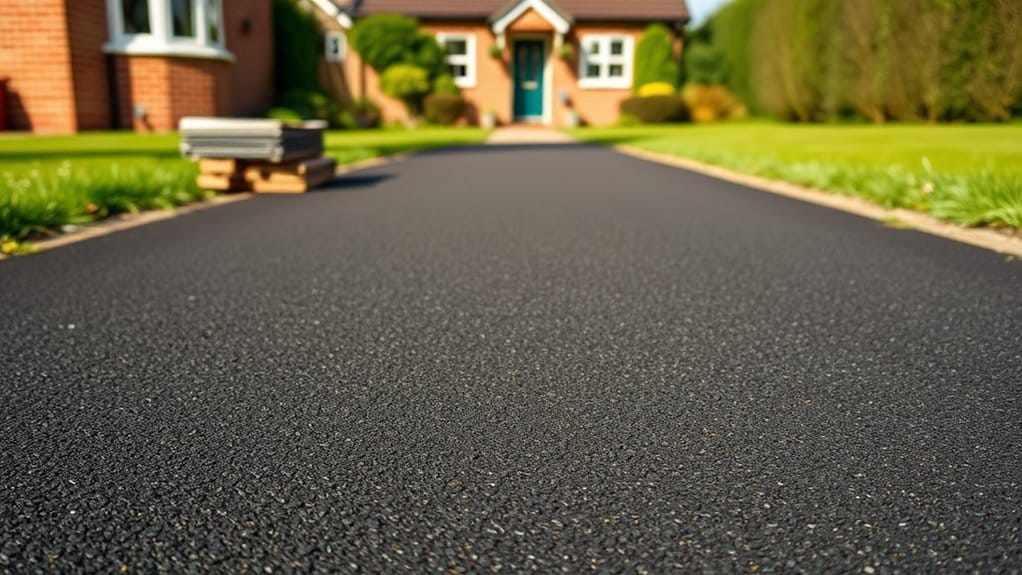
When considering a tarmac driveway, it's important to know what it's and why it's a popular choice among homeowners. Tarmac, a blend of asphalt and aggregate materials like bitumen, crushed stones, and sand, provides a strong and durable surface. The advantages of a tarmac driveway include its weather resistance, low maintenance requirements, and attractive appearance, which can boost your property's value. Additionally, a properly installed tarmac driveway can last 20 to 30 years with minimal upkeep, making it a long-term investment for homeowners.
Installing a tarmac driveway involves excavating the area, creating a solid sub-base, ensuring proper drainage, and then pouring hot tarmac, which is compacted for a smooth finish. With its capacity to endure heavy traffic and diverse weather conditions, a tarmac driveway is a reliable and cost-effective option for your home.
Key Cost Factors for Tarmac Driveways
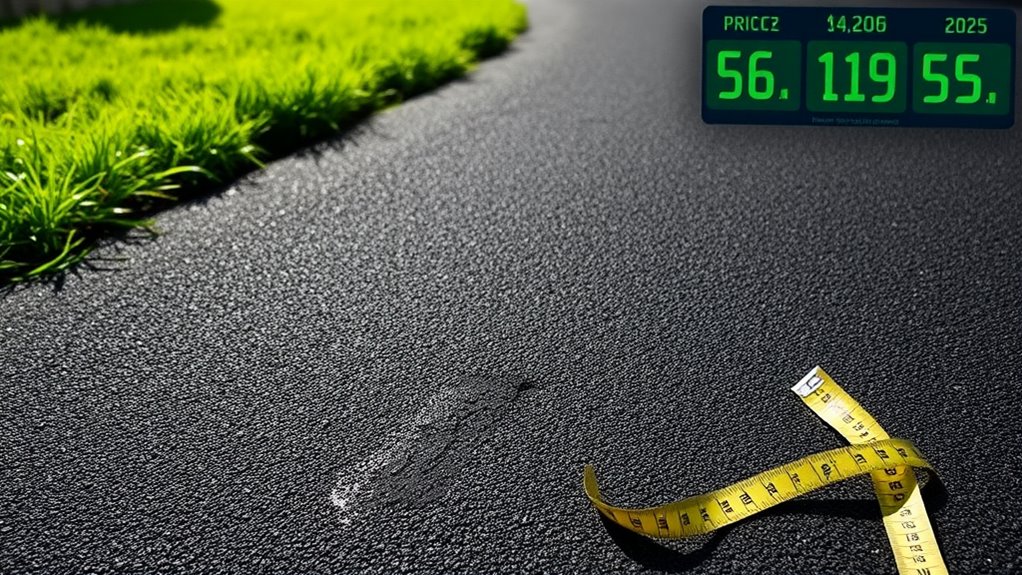
Understanding the key cost factors for tarmac driveways is crucial for budgeting and planning.
Here's a straightforward breakdown:
- Material Costs: Prices vary based on quality and supplier. For instance, higher-grade tarmac will cost more but offer better durability. Additionally, the choice of raw materials greatly influences the final driveway cost.
- Installation Factors: Larger or more intricate driveways need more materials and skilled labour, which can increase your overall costs.
- Contractor Expertise: Hiring experienced contractors ensures quality work, but it may also raise your labour expenses.
- Location: Prices can differ significantly by region. Urban areas tend to be pricier due to higher demand.
- Accessibility: If your site poses challenges for access, you may need specialised equipment or extra labour, which can add to the costs.
Average Pricing for Different Driveway Sizes
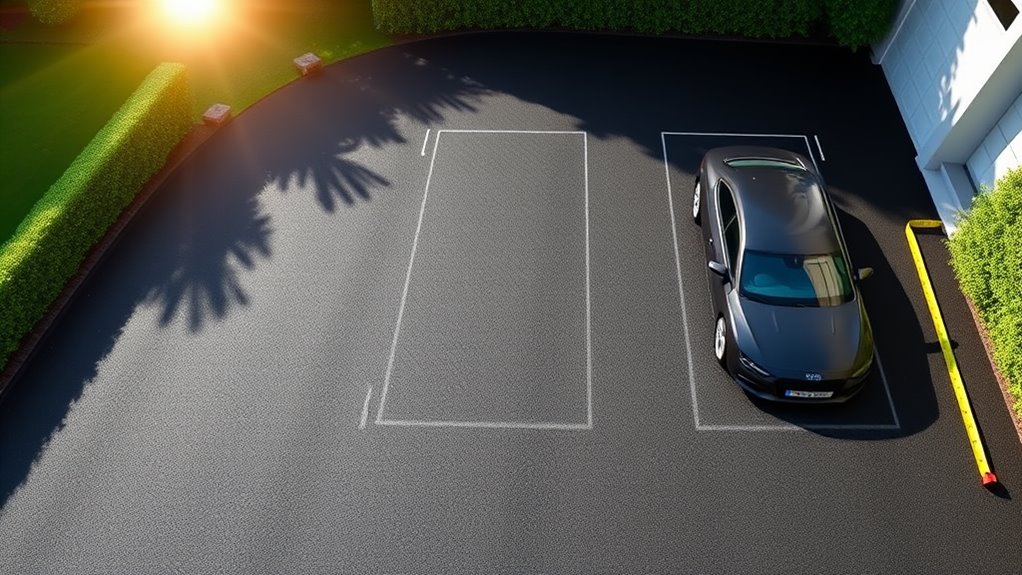
Tarmac driveways vary in size, which significantly affects pricing.
Here's a straightforward breakdown:
- Small Driveway (20m²): Approximately £2,200, suitable for one vehicle.
- Medium Driveway (50m²): Around £4,500, fits two cars, with possible additional costs for groundwork.
- Large Driveway (100m²): About £7,000, ideal for multiple vehicles and requires longer installation time.
- Durability: Tarmac is known for its durability and low maintenance, often outlasting other materials, making it a great choice for heavy traffic areas.
Comparing Tarmac With Other Paving Materials
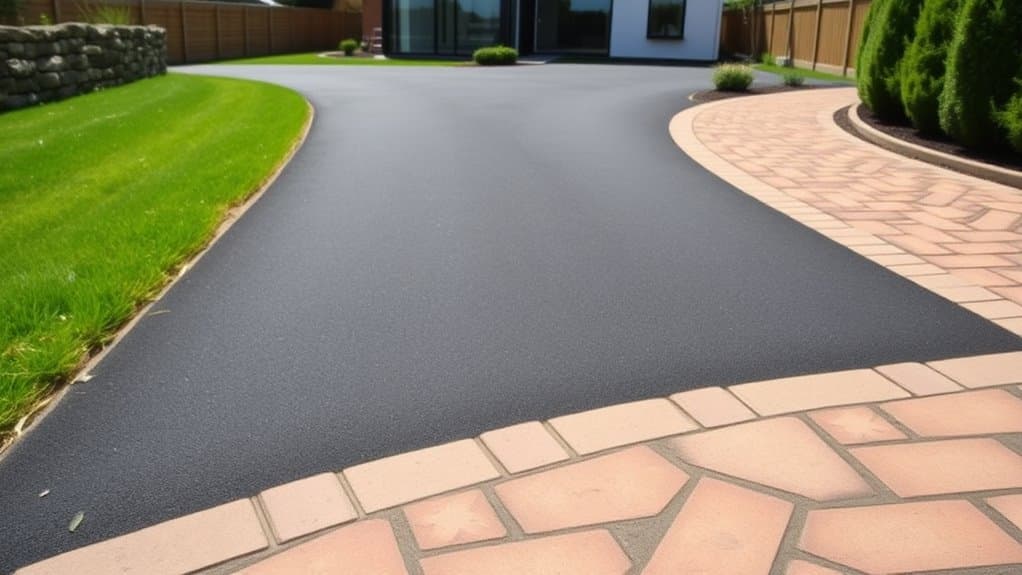
How do you select the right paving material for your driveway? Start by considering the pros and cons of tarmac compared to other options.
Tarmac is cost-effective, typically cheaper than concrete or block paving, and it's durable, able to handle heavy traffic without cracking. Installation is quick, often completed within 1-3 days, saving you time. However, it's non-permeable, which could lead to drainage issues.
When you compare it to asphalt, tarmac provides similar durability but tends to be more affordable.
Concrete is long-lasting but comes with a higher upfront cost and takes longer to install.
Block paving offers aesthetic flexibility but at a premium price.
Lastly, gravel is budget-friendly but requires regular maintenance and isn't ideal for heavy traffic.
Choose carefully based on your priorities! Additionally, keep in mind that resin driveways can provide superior durability, potentially lasting 15-25 years with proper maintenance.
Regional Cost Variations in the UK
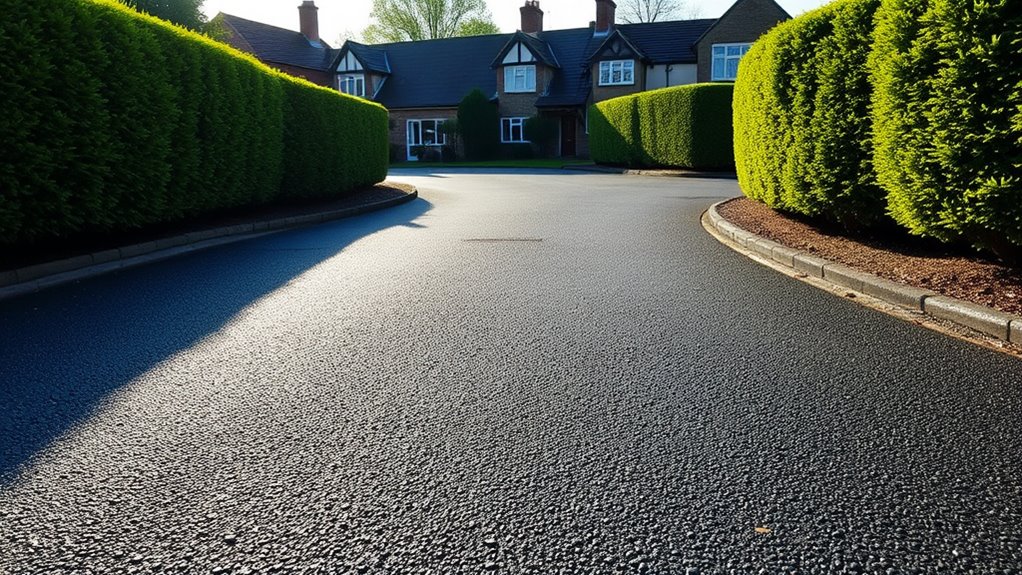
When selecting the right paving material for your driveway, it's crucial to consider how regional factors can impact the overall cost. Understanding these variations will aid in effective budgeting.
Here are four key considerations:
- Labour Costs: Typically, urban areas in the UK have higher labour rates than rural locations. For instance, hiring a contractor in London may cost significantly more than in a smaller town.
- Material Availability: The proximity to local suppliers can affect prices. For example, if you're in a remote area, the cost of tarmac may rise due to transportation expenses.
- Site Preparation: If your driveway is on uneven or complex terrain, preparation costs can increase. In hilly regions, additional groundwork might be necessary, adding to your budget.
- Local Regulations: Each area has its own building codes and regulations. Adhering to these can sometimes lead to increased expenses, such as needing special permits or inspections.
Installation and Maintenance Tips for Longevity
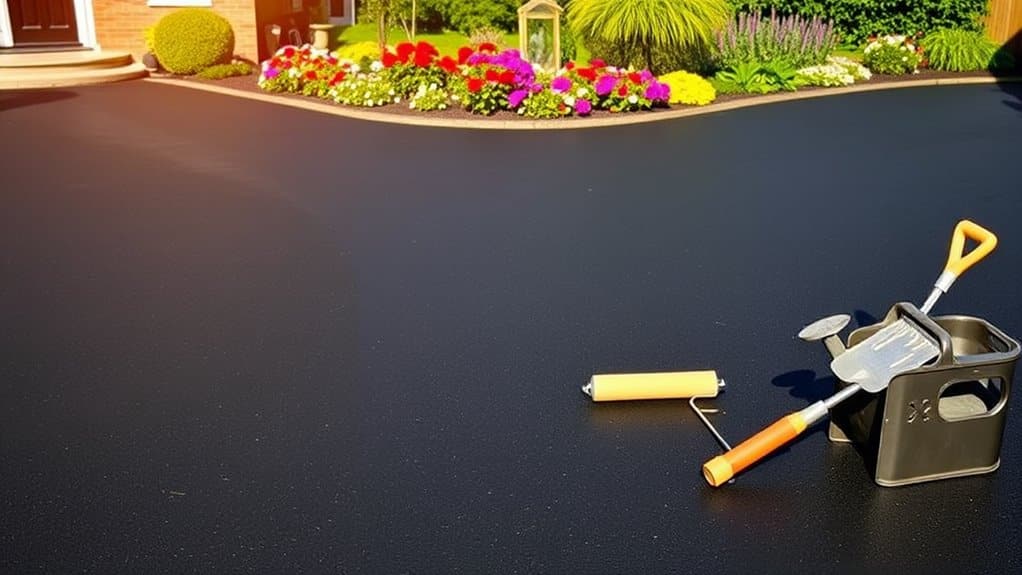
To ensure your driveway lasts, start with proper installation. This means preparing a solid base and using high-quality materials. Avoid heavy traffic for at least 3-5 days after installation to allow for proper curing.
For maintenance, clean your driveway regularly with a pressure washer to remove dirt and moss.
Apply sealants every 2-3 years to protect against moisture and UV damage. Keep an eye out for cracks and potholes, fixing them quickly to prevent further issues.
Avoid using chemical de-icers, and be mindful of heavy vehicles parking on it. Following these steps will help your driveway stay durable and looking good for years.
Frequently Asked Questions
How Long Does a Tarmac Driveway Typically Last?
A tarmac driveway usually lasts between 15 to 20 years. Its lifespan can vary based on maintenance, climate, traffic levels, and the quality of installation. For instance, regular checks and prompt repairs can significantly extend its durability.
Can Tarmac Driveways Be Repaired Easily?
Over 70% of tarmac driveways can be easily repaired using straightforward techniques. Simple solutions like crack repair compounds and pothole fillers are effective. Regularly inspecting your driveway will help you identify when repairs are necessary, ultimately prolonging its lifespan.
What Colors Are Available for Tarmac Driveways?
When selecting tarmac colour options, grey is a popular choice for its versatility. Green can bring a touch of nature to your property, while bold colours like blue and red can make a striking statement. These options not only enhance the look of your driveway but also offer durability and low maintenance.
Are Tarmac Driveways Eco-Friendly?
Tarmac driveways raise some sustainability issues because of their carbon footprint and how materials are sourced. However, opting for recycled materials or permeable tarmac can significantly lessen their environmental impact, making them a more eco-friendly option for your home. For instance, permeable tarmac allows rainwater to drain through, reducing surface runoff and helping prevent flooding.
How Does Weather Affect Tarmac Installation Timing?
Weather plays a crucial role in tarmac installation. For the best results, aim for spring or summer. Rain and high humidity can disrupt the process, so always check the forecast before laying the asphalt. For example, if there's a chance of rain, it's wise to postpone to ensure the tarmac sets properly.
Conclusion
In 2025, a tarmac driveway can enhance your property's appeal while keeping costs reasonable. Understanding the basics, key price influences, and regional differences will help you make an informed choice. A properly laid tarmac surface not only improves your home's entrance but also requires minimal maintenance to stay looking smart. So, give your vehicles a stylish welcome and enjoy the benefits of a durable driveway!
Prepare the perfect base for your resin bound stone installation and discover the crucial factors that ensure lasting durability.
Know where resin bound surfacing can transform spaces for both residential and commercial use, and discover the countless benefits that Read more
A stone carpet combines beauty and resilience in flooring, but what makes quartz floors uniquely beneficial? Discover the secrets behind Read more

